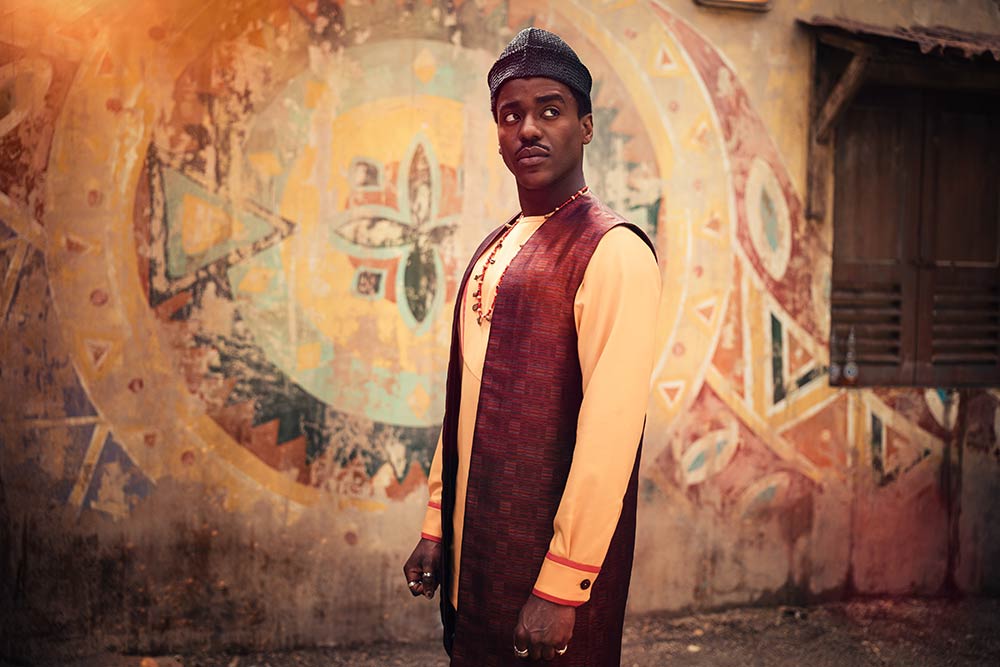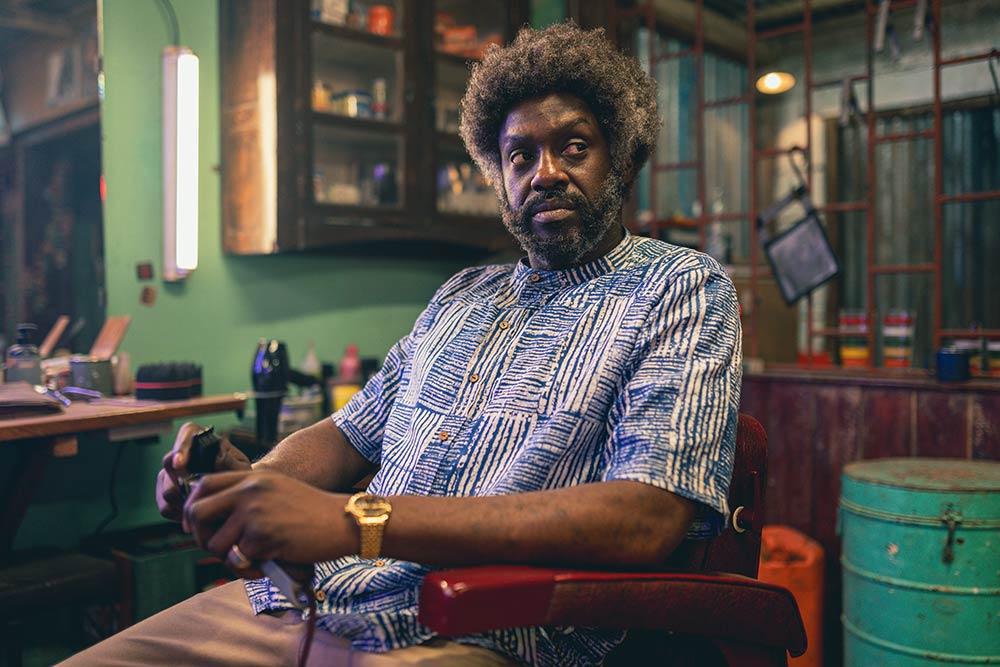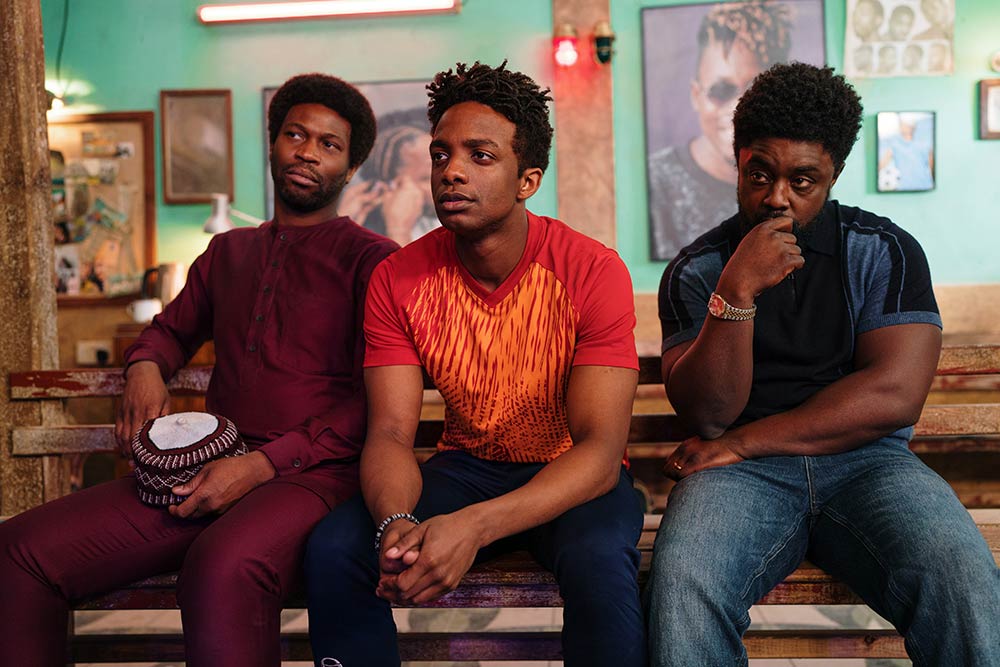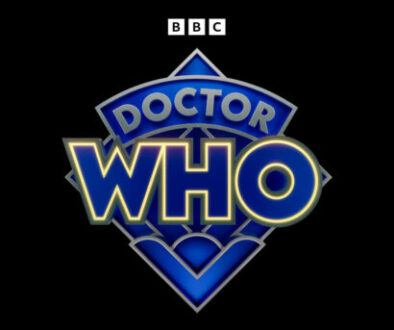Doctor Who: “The Story and the Engine” Is Beautiful, But Allergic to Logic – 2nd Opinion, Part 1

Gustaff Behr reviews the fifth episode of Series 15.
From the moment I heard a professional poet with a grand total of four writing credits was handling an episode of Doctor Who, I had concerns. Not because poets can’t write great stories, they absolutely can. Even seasoned screenwriters can produce flaming trash heaps that waste millions. But this? This is Doctor Who. We only get eight episodes a season now. Is this really the best talent we can muster?
It’s been a long time since I audibly swore at a television, but somehow, “The Story & the Engine” managed to drag that reaction out of me. And yet…frustratingly, the episode isn’t even bad. In fact, there’s a lot to love. The depiction of Lagos is vivid and immersive. The culture and setting don’t feel like a backdrop—they feel lived in. The visuals? Sumptuous. From the design of the spider and the eerie heart-brain engine to the windows that react to storytelling, it’s imaginative, unique, and often downright beautiful.
Even smaller moments sing. I adored the way Abena’s braiding played in the plot. It’s an inspired idea, and the shot accompanying that reveal? Genuinely cool. It’s frustrating because the directors this season (minus that “The Robot Revolution” misfire) have been knocking it out of the park. You can see the effort from the production team. The art design, the cinematography, everyone’s working overtime.
But great direction can’t be papered over everything. We only get so many episodes each year. Every script needs to matter. Every writer needs to bring their A-game. So, when the dialogue starts clunking, when the pacing drags, or when a moment that should hit emotionally just doesn’t…that’s when I start to feel it. The exhaustion. The sense that this show I’ve loved for so long is coasting on style, not substance.

And maybe that’s the real problem here. This episode is beautiful to look at, but I’m not convinced the show knows how to tell its own story anymore. Take the Doctor’s reasoning for visiting the barbershop in the first place. He says that now, because he has black skin, he feels less welcome in certain parts of his favorite planet.
Uh…no. That’s not true. At least, not in any way that has been meaningfully demonstrated to the audience on screen so far. Is he referring to the recent scene in “Lux”, where Mr. Ring-a-Ding conjured an illusion that mimicked racial discrimination? That wasn’t the real world, it was just manipulation. If he meant last year’s “Dot and Bubble”, that didn’t even take place on Earth.
And if we’re meant to believe the Doctor now faces prejudice on EARTH in his new body, what happened to last season’s fan-favourite Bridgerton episode, “Rogue“? You know, the one set in Regency era England, where he was dancing with another man in a room full of mostly white aristocrats, and there wasn’t a hint of tension about that.
Heck, the Doctor’s been carrying Psychic Paper around for over a thousand years at this point. And it’s not like the show is shy about this kind of tech. In “Spyfall”, the Dhawan Master literally uses a gadget to pass himself off as a Nazi officer! Plot-convenient gadgets are on-brand for Time Lords. Seriously, you can’t forget those exist just because you’re trying to make a social point. That’s not just lazy writing, it’s actively undermining your own themes. You don’t get to have your cake and eat it too.
If you want to explore how the Doctor’s identity affects the way he moves through the world, show us. Build it into the story. Let it develop over time. Don’t just have him drop a single line of dialogue like a lead weight, and expect that to carry the weight of an allegory. That’s not good representation. That’s checkbox storytelling.

Which brings me to the Doctor’s supposed friendship with Omo, a relationship handled with all the subtlety of a brick to the face. Watching it play out, I was reminded of another episode I recently reviewed, “Fond Farewell”, where the Doctor attends the funeral of a friend we’d never heard of before. But that script at least gave us flashbacks. It let us see how the Doctor and this friend bonded, how their connection formed. It earned the emotional weight it was aiming for.
Here? We’re simply told they are friends. Just told. No scenes, no texture to their history, just dialogue trying to fill in the blanks. Then the big “twist” drops: Omo lured the Doctor to the barbershop to sacrifice him. The show acts like this is meant to be shocking. Devastating. Emotional.
I don’t care.
I met this guy five minutes ago. For all I know, betrayal is his default mode of existence. The story never gives me a reason to believe otherwise so it’s hard to feel a sense of betrayal when the only thing I know about the character is that he…exists. This is basic storytelling stuff: If you want me to be upset that someone stabbed the Doctor in the back, maybe introduce this friendship earlier in the era or pick a different character that already has this relationship with the Doctor.

Now, we’re inside the barbershop and the rules are explained. It’s locked. You have to tell stories while getting a snip. Sounds simple, right?
Wrong.
Because I spent a good chunk of this episode just yelling “Why?!” at the screen. Why don’t the four young men just wait for Abena to open the shop, like she does every day, and slip out? Why don’t they physically overpower the Barber or Abena? There are four of them. The Barber and Abena are described as ‘gods’ but they don’t ever demonstrate any supernatural powers, so they’re just human? These four men are all seemingly capable, and we’re meant to believe these hostages just sit there for days on end, helplessly trimming split ends? Why doesn’t anyone wrestle the remote for the door away from them? Or warn the Doctor not to close the door behind him? Why doesn’t the Doctor use the sonic screwdriver to try and escape the moment he learns what’s happened? Why doesn’t Belinda get a heads-up when she strolls in?
Do you understand now what I mean by verbally frustrated?

But wait, it gets better. Let’s talk about the villain’s entire business model. Why is he even holding people hostage? My brother in Christ, the man runs a barbershop. Hair grows. People come in. People talk. It’s a built-in storytelling goldmine. Just run the damn business like normal and let the stories flow. There’s no need for imprisonment. And if he’s supposedly lived for centuries, thousands of years even, are we really meant to believe the Barber doesn’t have enough stories of his own to power the engine? It’s like the episode is allergic to its own logic.
- Times the 15th Doctor has cried: 16 (across 15 episodes)
- Times he’s actually saved the day: 3 / 15
Look, I get it. I understand the whole “turn your brain off and enjoy the ride” mindset—but not all of us work that way. Some of us have intellectual thresholds. A comedy that isn’t funny. A murder mystery with no murder (or no mystery), these things don’t work on us, no matter how flashy the direction or heartfelt the performances.
And I’m sorry. I refuse to lower my standards just because someone “tried” their best. Effort alone isn’t a substitute for coherence. Am I being too hard on the show? Maybe I’m being sharp, but I’m not being unfair. Every frustration I’ve voiced comes from somewhere specific: inconsistent logic, undercooked character relationships, recycled arcs, and storytelling that expect emotion without earning it. These aren’t petty gripes, they’re red flags for a show that once prided itself on cleverness, heart, and ambition.
I’m not complaining that the show isn’t my version of Doctor Who, I’m pointing out lazy execution, squandered potential, and creative decisions that actively contradict earlier plot points. That’s fair game. Especially when the production value is so high and the talent pool so deep, it’s reasonable to expect more than pretty visuals and hand-wavey sentimentality. I want the show to be better because I care. That care is what fuels the criticism, not malice, not bitterness, but love for a series that used to challenge and inspire. I don’t think that’s too much to ask.
Asides
- That Fugitive Doctor moment might be the most pointless cameo to ever cameo in the history of television. Either do something with her or leave her in peace.
- Is anyone else noticing that Russell T Davies is repeating the exact same story arc from last season? A seemingly mundane woman shows up in every episode to vaguely remind the audience she exists. Last year it was Susan Twist. This year, it’s Mrs. Flood.
- So apparently the Doctor opened the Time Lord fob watch off-screen? Because now he suddenly remembers things he did as the Fugitive Doctor. Weird. You’d think a moment like that deserves more than a 10-second cameo and zero screen time.
- While forgiveness is an important theme, what exactly is the show trying to say with “you should forgive the people who hold you hostage or try to kill you”? That’s not emotional maturity, that’s moral negligence. Forgiveness doesn’t mean abandoning accountability and pushing that message without nuance in 2025 is tone-deaf at best, dangerous at worst.








